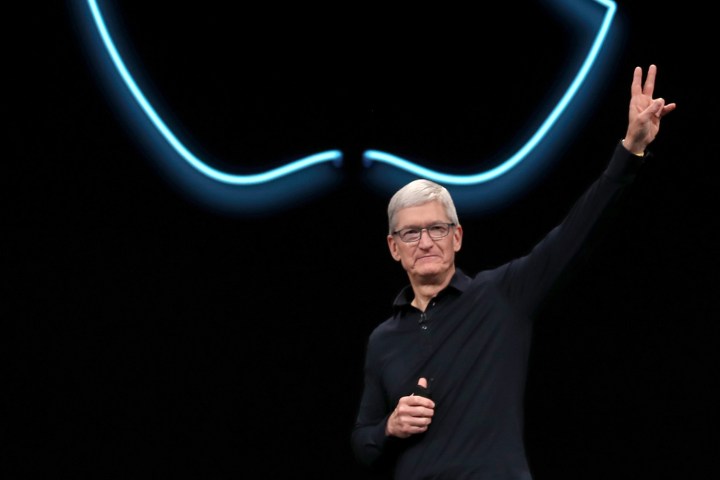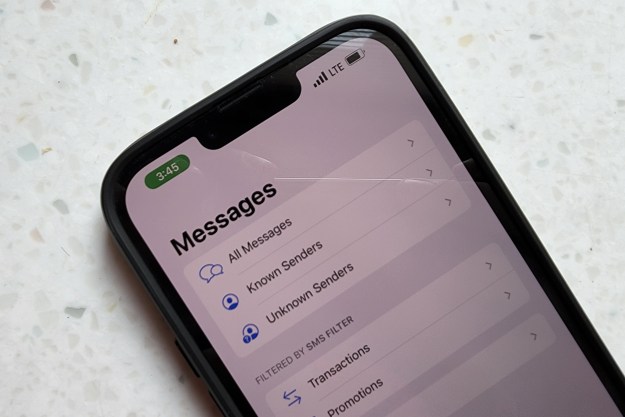
The King of Silicon Valley just called it a “chaos factory.”
Giving a commencement speech at Stanford University, Apple CEO Tim Cook criticized his fellow Silicon Valley giants for disregarding the privacy of their customers.
“We see it every day now, with every data breach, every privacy violation, every blind eye turned to hate speech. Fake news poisoning our national conversation. The false promise of miracles in exchange for a single drop of your blood. Too many seem to think that good intentions excuse away harmful outcomes,” Cook said.
“It feels a bit crazy that anyone should have to say this. But if you’ve built a chaos factory, you can’t dodge responsibility for the chaos. Taking responsibility means having the courage to think things through,” he continued.
Cook was not-so-subtly calling out his fellow Big Tech giants: Facebook, Google, and Amazon. It’s a sign that Apple got the memo as governments (and customers) realize just how big of an impact massive tech companies have in their lives. He’s not wrong in calling that impact chaotic. But Apple’s trying to capitalize on that chaos while protecting itself from the consequences.
As Congress, the Federal Trade Commission, and the Department of Justice move toward antitrust investigations against the big four Silicon Valley companies, Apple decided to position itself as The Good One. That’s good business, too. Cook seems to have realized something that the other tech giants have yet to embrace: Privacy is profitable.
You can see it in the latest features unveiled at Apple’s Worldwide Developers Conference earlier in June. The latest version of the iPhone’s operating system will come with a “Sign in with Apple” feature that allows you to log into apps without forking over your email address. Facebook, Google, Amazon have long offered a version of this login feature (tied to your email, of course), which Apple Senior Vice President of Software Engineering Craig Federighi described as “convenient” but coming at the cost of privacy — another dig at competitors.
Cook is in something of a privileged position as the least chaotic member of the chaos factory. Apple makes its money off selling you devices, whether that’s an iPhone or a MacBook, or by taking a cut of sales from its App Store. But by baking privacy into its already-expensive products, Apple’s essentially making protections for your data a luxury good.
You generally don’t pay Facebook or Google for products because they’re essentially advertising companies. They make a huge portion of their revenue via ad sales that target you down to your interests or location. Ever gotten a notification from Google about a store you just walked by? That’s because Google wants to track you and let advertisers do the same. It’s how these companies make their money.
That’s also why it’s hard to take Facebook CEO Mark Zuckerberg seriously when he says he wants to build a “privacy-focused social platform.”
Amazon’s something of a hybrid, but it relies on knowing everything about you so it can suggest items you’ll actually buy. There’s also Alexa, which has its own cavalcade of privacy issues — including a report that thousands of workers around the world listen to Alexa recordings.
Cook has seen what the future holds for big tech as policymakers reach a rare bipartisan consensus. The House of Representatives launched a major antitrust investigation into Facebook, Google, Apple, and Amazon earlier in June. Democratic presidential candidates like Elizabeth Warren have called for breaking up Silicon Valley’s biggest companies. The Trump Justice Department and FTC could launch antitrust investigations of their own any day now. There are also European regulators, who could make even stricter privacy rules in the aftermath of the General Data Protection Regulation (GDPR).
Silicon Valley is waking up to the fact that it could be a rough couple of years. Cook is trying to get ahead of the game by expanding Apple’s privacy features and encouraging his rivals to do the same.
If lawmakers and the public continue to scrutinize big tech and privacy becomes a bigger issue, we could start to see a kind of privacy arms race. Where Apple goes, rivals tend to follow. If we’re lucky, we could see a huge ramp-up of privacy features across our devices and apps as rivals compete for customers. That might not fix the chaos factory, but it would at the very least make it a little less chaotic.
Editors' Recommendations
- Here’s how Apple could change your iPhone forever
- Apple boss Tim Cook launches charm offensive in vital market
- Elon Musk says he will speak to Tim Cook about changing the ‘Apple tax’
- My iPhone 14 Pro camera is ruined, and it’s all Apple’s fault
- Google’s Android monopoly finds its biggest challenge, and Apple might be next




